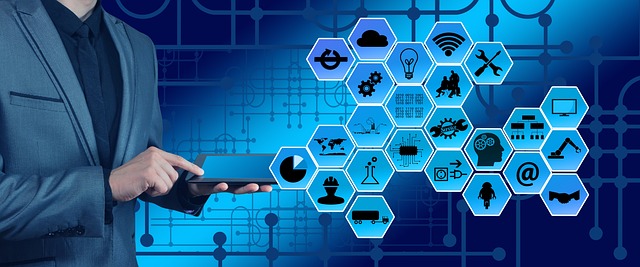# AI Technology and Its Role in Transforming the Future of Work, Society, and Human Interaction
Artificial Intelligence (AI) has emerged as one of the most transformative forces of the 21st century, reshaping industries, enhancing productivity, and redefining the very fabric of human interaction. As organizations and societies increasingly integrate AI technologies into their operations and daily lives, the implications of these advancements extend far beyond mere efficiency gains. This article delves into how AI is revolutionizing the future of work, influencing societal structures, and altering human interactions.
## The Future of Work: Automation and Augmentation
In the realm of employment, AI has sparked a dual revolution characterized by automation and augmentation. Automation refers to the ability of AI systems to execute tasks traditionally performed by humans, often leading to increased efficiency and reduced operational costs. Industries such as manufacturing, logistics, and customer service are witnessing a significant shift as AI-driven robots and algorithms take over repetitive and mundane tasks. For instance, the use of AI in supply chain management optimizes inventory levels, predicts demand fluctuations, and streamlines operations, allowing human workers to focus on more strategic responsibilities.
Conversely, augmentation highlights the potential of AI to enhance human capabilities rather than replace them. By leveraging AI tools, employees can access real-time data, receive intelligent insights, and make informed decisions. For example, in the healthcare sector, AI is revolutionizing diagnostics by analyzing medical images with a level of precision that often surpasses human capabilities. As a result, healthcare professionals can provide better patient care, ultimately leading to improved health outcomes.
The integration of AI in the workplace also raises questions about the future of job roles. While some positions may become obsolete, new opportunities are being created that require a blend of technical skills and human empathy. Companies are increasingly seeking employees who can work alongside AI systems, interpreting data and making nuanced decisions that machines cannot. This evolution necessitates a shift in workforce training and education, emphasizing the importance of lifelong learning and adaptability.
## Societal Implications: Shaping Communities and Culture
Beyond the workplace, AI technology is reshaping societal structures and cultural norms. Smart cities, powered by AI, are emerging as models of efficiency and sustainability. Through the use of AI algorithms, urban planners can analyze traffic patterns, optimize public transportation, and manage energy consumption more effectively. As a result, cities become more livable, reducing congestion and pollution while enhancing overall quality of life.
Moreover, AI’s influence extends to social interactions and communication. Social media platforms utilize AI algorithms to curate content, personalize user experiences, and enhance engagement. While this has the potential to foster community and connection, it also raises concerns about echo chambers and misinformation. Algorithms that prioritize engagement can inadvertently amplify divisive content, shaping public discourse and influencing societal attitudes.
In education, AI is transforming learning experiences by providing personalized learning pathways for students. Adaptive learning technologies analyze individual performance and preferences, allowing educators to tailor their approaches to meet diverse needs. This shift not only enhances student engagement but also promotes inclusivity, ensuring that all learners have access to quality education.
The ethical implications of AI in society cannot be overlooked. As AI systems become more pervasive, issues related to privacy, bias, and accountability come to the forefront. The development of guidelines and regulations to govern AI usage is crucial to ensuring that these technologies serve the public good and do not exacerbate existing inequalities. Societies must engage in ongoing discussions about the ethical deployment of AI, balancing innovation with responsibility.
## Human Interaction: Redefining Relationships
As AI technologies become integrated into daily life, the nature of human interaction is undergoing a profound transformation. Virtual assistants, chatbots, and AI-driven communication tools are increasingly mediating our interactions, from customer service inquiries to personal relationships. While these technologies enhance convenience and accessibility, they also challenge traditional notions of communication and connection.
The rise of AI companions and social robots presents a fascinating paradigm shift in how we perceive relationships. For some individuals, especially those who may experience social anxiety or isolation, AI companions can provide a sense of comfort and companionship. However, this raises questions about the authenticity of such relationships and the potential for emotional dependency on machines. As society navigates this uncharted territory, it is essential to consider the psychological and social implications of relying on AI for companionship.
In professional settings, AI is also reshaping collaboration and teamwork. Tools powered by AI facilitate remote work, enabling seamless communication and project management across geographically dispersed teams. While this fosters greater flexibility and inclusivity, it also necessitates a reevaluation of workplace culture and dynamics. Organizations must prioritize building trust and fostering genuine connections among team members, even in a digital environment.
Ultimately, the impact of AI on human interaction hinges on how society chooses to integrate these technologies into daily life. Striking a balance between leveraging AI for efficiency and preserving the essence of human connection is imperative. As we move forward, fostering a culture of empathy and ethical considerations in AI development will be crucial in ensuring that technology enhances, rather than diminishes, our humanity.
## Conclusion: Embracing the AI-Driven Future
AI technology is undeniably transforming the landscape of work, society, and human interaction. By embracing the possibilities that AI presents, organizations and individuals can unlock new levels of productivity and creativity. However, the journey towards an AI-driven future is not without challenges. Ethical considerations, workforce adaptation, and the preservation of human connection must remain at the forefront of discussions surrounding AI integration.
As we stand on the precipice of this technological revolution, it is essential to approach AI with a mindset of collaboration and responsibility. By harnessing the power of AI while prioritizing ethical considerations and human values, we can navigate the complexities of this new era and shape a future that benefits all of humanity. The role of AI in transforming our lives is just beginning, and how we choose to engage with this technology will determine the trajectory of our collective future.











